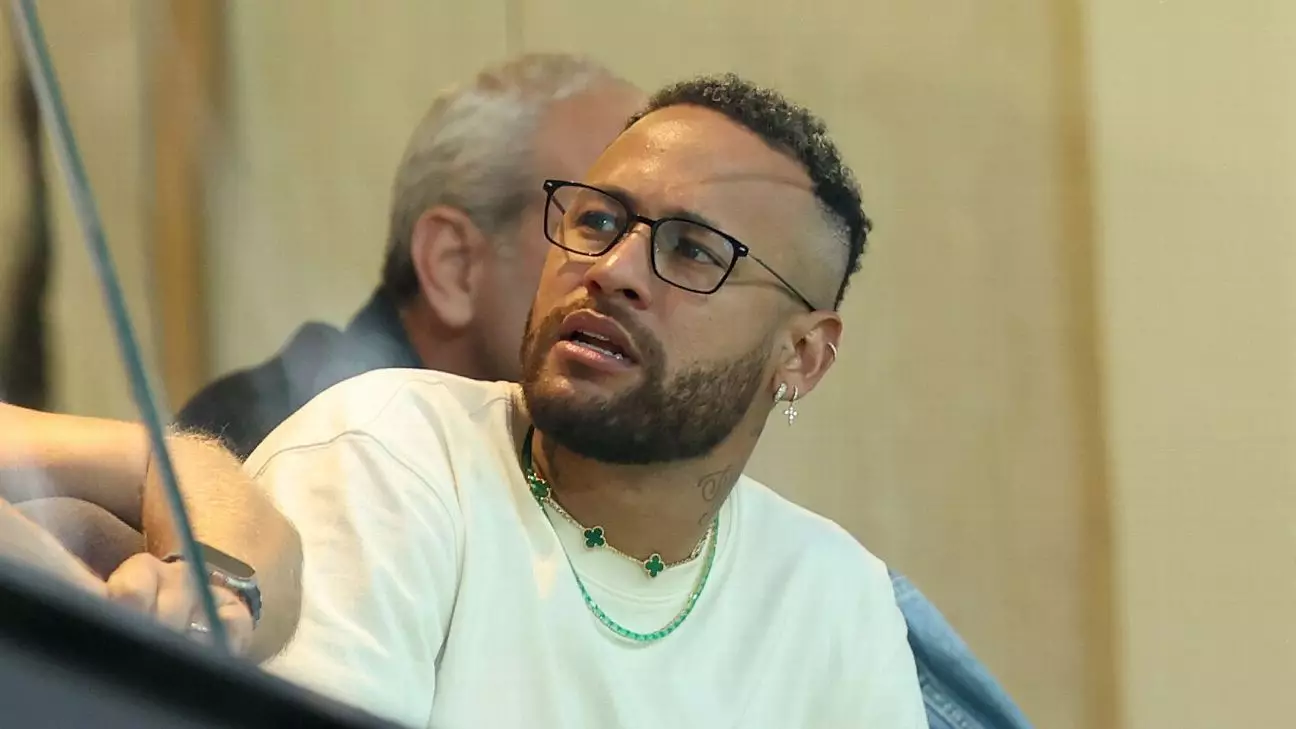As Major League Soccer (MLS) continues to attract global attention, the interest surrounding marquee players transitioning to the league raises many questions about feasibility and regulation. The latest conversation focuses on Neymar, the Brazilian star currently contracted with Saudi Pro League team Al Hilal until 2025, and the prospect of his joining Inter Miami following the arrivals of his former Barcelona colleagues, including Lionel Messi, Luis Suárez, and Sergio Busquets. In a recent statement, head coach Gerardo Martino painted a realistic picture of the challenges facing both the player and the club, casting doubt on the practicality of such high-profile transfers under the current MLS framework.
Martino’s commentary regarding Neymar underscores the broader dilemma inherent within the MLS structure. The league’s strict salary cap and roster restrictions present considerable hurdles for teams aspiring to recruit prominent international talent. While Martino expressed his admiration for Neymar, he reiterated that the likelihood of securing such a high-profile addition is slim unless there is a change in the league’s financial regulations. His sentiment highlights a critical tension: the desire for star players to enhance the league’s visibility versus the rigid financial constraints limiting teams’ operational flexibility.
The chairman of the MLS may need to reconsider its financial framework to allow greater fluidity regarding signings. Although New York City FC’s acquisition of the legendary Italian striker Francesco Totti remains one of the prime examples illustrating the league’s capacity for transformation, it also denotes an isolated case rather than a replicable model. Discourses about high-profile candidates like Neymar will persist, yet the official stance of the league must emphasize the importance of adhering to existing fiscal guidelines.
Furthermore, Martino expressed skepticism regarding the correlation between Neymar purchasing property in Miami and the potential for him joining Inter Miami. Speculations based on real estate ownership seem overly simplistic and, as Martino suggests, lack substantial evidence or logical context. He aptly remarked that merely acquiring a residence in a city does not guarantee an athlete’s association with the local sports team, a point that bears emphasizing amid the surge in unfounded rumors prevalent in sports discourse.
The undue influence of real estate rumors raises ethical questions about media representations of athletes. Such narratives can cloud judgment and contribute to misinformation, often leading fans and supporters to latch onto unrealistic expectations. A more nuanced understanding of athletes’ lives—rooted in personal choices rather than potential team alignments—is imperative for responsible reporting.
In light of these ongoing rumors, it seems prudent for Inter Miami to recalibrate its focus on the present rather than the uncertain future. Martino made it clear that the immediate priority lies in preparing the team for a critical playoff match against Atlanta United. The stakes could not be higher—advancing to the conference semifinals or facing elimination. For a team still adjusting to new integrative dynamics, this match could define their trajectory moving forward.
While speculation about Neymar may tantalize fans, it is in the best interest of the players and coaching staff to maintain focus on current objectives. Stars like Sergio Busquets, though currently battling illness, play an essential role in the squad’s cohesiveness and performance. Martino’s reflective approach on player health and readiness illustrates the need for stable team dynamics amidst thriving uncertainty.
In closing, while the allure of marquee signings like Neymar will capture headlines and fan interest, the realities of MLS financial regulations provide a sobering contrast. As discussed by Martino, these parameters create a challenging environment for significant player transfers—particularly when weighed against the backdrop of urgent competitive aspirations. For Inter Miami, the focus ought to remain on the pitch, emphasizing skill, teamwork, and immediate goals rather than feeding into fanciful speculations of highly improbable player movements.

Leave a Reply